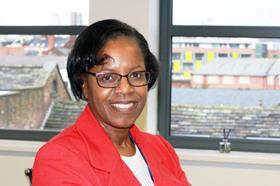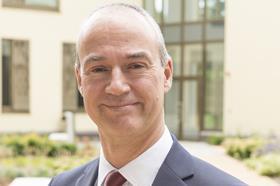Nick Carver and Joan Saddler give an overview of two recently held podcasts that featured an expert panel discussing inclusiveness in the health service

In a two-part podcast series from NHS Confederation and the Midlands and East Regional Talent Board, chaired by Sally Scales, head of NHS executive search, we were joined by Tracie Jolliff, director of inclusion at the NHS Leadership Academy to discuss the themes of equality, diversity and inclusion within the health workforce.


We have lots of talented people in the NHS, and there is no doubt that most leaders get to be in their positions because of their hard work, skills and experience.
Often, they also benefit from having coaches or people who support them, telling them they are good enough to succeed – in other words, allies. Everyone needs allies, and everyone needs to be an ally.
We know that in the health service many of our best people are not coming through to senior positions, something which is inevitable in a system without rigorous and inclusive talent management processes and practices.
In any industry or sector, those people who are natural self-presenters or those who are supported to push themselves forward are often more likely to be successful.
When we look across the system we see that the people who are bearing the brunt of discrimination are the ones doing the heavy lifting
We also know that in cultures that are not inclusive, people in under-represented groups are less likely to advance, with a variety of factors holding them back.
We need to do better. If we want the best health service, we need our best people to rise up into leadership positions and the senior tiers of our organisations need to be accountable to communities, seeking to represent communities they serve.
The good news is that in the NHS we have seen that if there is a clear focus on improving something, then it generally does tend to improve. Time and time again, the health service has proven that when we focus and put resources in, we get results.
The Workforce Race Equality Standard is quite rightly setting the standard for NHS organisations in relation to black and minority ethnic employees.
The focus has also now broadened to include disabilities with the Workforce Disability Equality Standard and we must continue to ensure all colleagues, including women and those from LGBT+ groups, are also given opportunities to grow, advance and thrive.
Listen and act
As Tracie Jolliff says in the podcast, when we look across the system we see that the people who are bearing the brunt of discrimination are the ones doing the heavy lifting. They are the people raising issues, putting lived experience in the room and talking about discrimination and harassment in staff surveys.
Recognising not everyone has the same experience of an organisation is vital.
Acknowledging that people have different experiences means listening and acting on what is being said – that can be uncomfortable, especially if people’s experiences of our organisation is that it is not as inclusive as we thought – but it is necessary, and we must not close down conversations or deny people’s realities.
Acknowledging that people have different experiences means listening and acting on what is being said – that can be uncomfortable
We need to help employees to navigate through the system in order to allow them to fulfil their potential and we need to be looking at how we make sure we are not leaving anyone behind. How do we go where the data tells us we need to go and make clear improvements?
Throughout our careers we have both personally benefitted from people who have had a significant positive influence on us but we also need something over and above the individual actions of good people.
Setting an example
Good examples of inspiring work on inclusion exist such as at East London Foundation Trust, where equality, diversity and inclusion are core to its successful quality improvement approach.
Additionally, at the Royal Free London FT, the chair takes a key role in reviewing recruitment to ensure panel policies are followed, scrutinises every role via post-recruitment feedback to try to ensure candidates are not discriminated against, sets expectations and consequences around equality, diversity and inclusion and visibly leads on the agenda.
The Midlands and East Regional Talent Board, like all the regional talent boards around the country, is in its early stages but is taking measures such as ensuring that there are truly objective assessment criteria in place that do not favour one group over another, insisting that everyone involved in the recruitment process take part in conscious decision-making training and that candidates for its talent pool are able to demonstrate that they think about inclusivity in all the decisions they make.
In March, the NHS Confederation launched a BME Leadership Network, with the ultimate aim of delivering better care. The network will improve the understanding of equality, diversity and inclusion and publish the benefits – for all as well as improving and sustaining the number of BME leaders working in the NHS.
We need a more structured approach to talent management to make sure talented people are making the progress they are capable of and our leadership development programmes mustn’t occur in a vacuum, they need to be part of a wider, inclusive talent management system.
In short, we need to work together, as a system, and across organisations to manage our talent more effectively and equitably, for the benefit of all our staff and patients.
Nick Carver is the CEO of East and North Hertfordshire NHS Trust and chair of the Midlands and East Regional Talent Board.
Joan Saddler OBE is director of partnerships and equality at the NHS Confederation and co-chair of the NHS Equality and Diversity Council.
Listen to the podcast here:
Soundcloud:
Episode 1: https://soundcloud.com/
Episode 2: https://soundcloud.com/
Acast: https://www.acast.com/
Stitcher: http://www.stitcher.com/s?fid=


























No comments yet